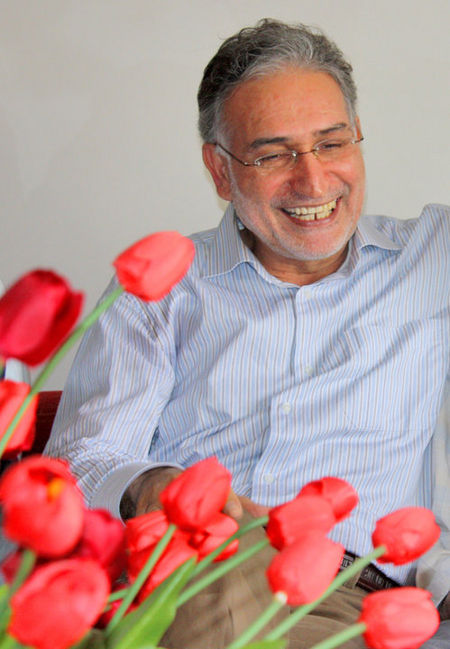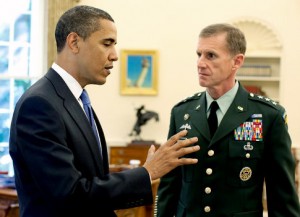Thursday
Jun242010
The Latest from Iran (24 June): Persistence
 Thursday, June 24, 2010 at 15:50
Thursday, June 24, 2010 at 15:50  2015 GMT: International Front. By the narrow margin of 99-0, the US Senate has approved a bill with sweeping sanctions --- far wider than the UN resolution that passed earlier this month --- on Iran's banking and energy sectors.
2015 GMT: International Front. By the narrow margin of 99-0, the US Senate has approved a bill with sweeping sanctions --- far wider than the UN resolution that passed earlier this month --- on Iran's banking and energy sectors.1545 GMT: Parliament v. President. Video has been posted of Speaker of Parliament Ali Larijani's speech in the aftermath of the Basij/student demonstrations against the Majlis bill asserting control of Islamic Azad University.
NEW Iran Special: Mousavi, Karroubi, and the Strategy of “We Are Still Standing (for the Revolution)”
Iran Document: The Mousavi-Karroubi Meeting (23 June)
Iran Eyewitness: An “Army of Strollers” and Allah-o-Akbar on 12 June (Tehran Bureau)
The Latest from Iran (23 June): Baghi Freed
1510 GMT: Political Prisoner Watch. Student activist and Mousavi campaign worker Arash Sadeghi has been sentenced to six years in prison and 74 lashes.
Labour activist Mohammad Ashrafi has been arrested.
Student Sina Tahani, detained earlier this month for distributing Mousavi and Karroubi leaflets, has turned 18 in prison.
Photographs of filmmaker Mohammad Nourizad, released yesterday from detention, have been released.

1240 GMT: This Week's Political News --- Shutting Down the Reformists? An EA correspondent follows up the news, which we noted earlier this week, that Parliament has deferred the local elections for Tehran and other city councils until spring 2012.
The correspondent asserts, "Should the Guardian Council approve this, this would give time to the conservatives to rout the reformists, removing them completely from the political radar. I believe it to be an ominous sign regarding the attitude of the ruling clique towards the concept of electoral politics."
1230 GMT: Political Prisoner Watch. Fatemeh Shams, the wife of student activist Mohammad Reza Jalaeipour, has told Radio Farda, "In a short phone call [on 20 June, six days after his detention], he told his mother that he was being held in solitary [confinement], but when asked in which prison, he remained silent."
Shams added, "Two days before Mohammad Reza's arrest, I received threatening e-mails from a group called the Cyber Army of the Islamic Republic saying 'we'll arrest your husband.'" The same group sent her another threatening e-mail after her husband's arrest saying, "We'll make you return to Tehran."
Seyed Hossein Marashi, former member of Parliament, Vice President in the Khatami Administration, and brother–in-law of former President Hashemi Rafsanjani has given leave of absence from prison for a week. Marashi is serving one year in prison for propaganda against the regime.
1225 GMT: Parliament v. President. Footage has emerged of the Basij/student demonstration in front of Parliament on Tuesday, protesting the Majlis bill maintaining control (and thus refusing to cede it to the President) over Islamic Azad University.
[youtube]http://www.youtube.com/watch?v=87ANAadXRwA&feature=youtu.be[/youtube]
0754 GMT: The Situation Abroad. Writing in Rooz, Kaveh Ghoreishi highlights, "Iranian Refugees In Iraq Face Uncertain Fate".
0750 GMT: Political Prisoner Watch. RAHANA reports that 325 people were arrested during the month of Khordaad (May/June).
0730 GMT: We begin this morning with an analysis, "We Are Still Standing (for the Revolution) of Wednesday's statement by Mir Hossein Mousavi and Mehdi Karroubi.
Meanwhile....
Academic Corner
The International Campaign for Human Rights in Iran, with an interview with a student activist, highlights, "Summonses, Notices, and Dismissals at Qazvin International University".
Political Prisoner Watch
Fars News reports that the trial in Tehran Revolutionary Court of blogger Hossein Derakhshan has finally begun.
Derakhshan was arrested 19 months ago. He is accused of “cooperation with enemy states, propaganda against the Islamic regime, promoting anti-Revolutionary groups, insulting sanctities, launching and managing vulgar and obscene sites”.
Derakhshan was one of the first Iranian bloggers when he created “Editor: Myself.” He had settled in Canada but was detained when he returned to Iran in November 2008.
Where's Mahmoud?
For President Ahmadinejad, it is still eyes front-and-centre on the international front. He told an audience Wednesday, "The recent [United Nations sanctions] resolution against the Iranian nation was in fact a loud announcement of the fall of liberalism and humanism. Those who ratified the resolution are perfectly aware that it will have no impact."
tagged  Ali Larijani,
Ali Larijani,  Arash Sadeghi,
Arash Sadeghi,  Fatemeh Shams,
Fatemeh Shams,  Guardian Council,
Guardian Council,  Hossein Derakhshan,
Hossein Derakhshan,  Hossein Mar'ashi,
Hossein Mar'ashi,  Iran,
Iran,  Iran Elections 2009,
Iran Elections 2009,  Islamic Azad University,
Islamic Azad University,  Kaveh Ghoreishi,
Kaveh Ghoreishi,  Mahmoud Ahmadinejad,
Mahmoud Ahmadinejad,  Mehdi Karroubi,
Mehdi Karroubi,  Mir Hossein Mousavi,
Mir Hossein Mousavi,  Mohammad Ashrafi,
Mohammad Ashrafi,  Mohammad Nourizad,
Mohammad Nourizad,  Mohammad Reza Jalaeipour,
Mohammad Reza Jalaeipour,  RAHANA,
RAHANA,  Radio Farda,
Radio Farda,  Rooz,
Rooz,  Sina Tahani in
Sina Tahani in  Middle East & Iran
Middle East & Iran
 Ali Larijani,
Ali Larijani,  Arash Sadeghi,
Arash Sadeghi,  Fatemeh Shams,
Fatemeh Shams,  Guardian Council,
Guardian Council,  Hossein Derakhshan,
Hossein Derakhshan,  Hossein Mar'ashi,
Hossein Mar'ashi,  Iran,
Iran,  Iran Elections 2009,
Iran Elections 2009,  Islamic Azad University,
Islamic Azad University,  Kaveh Ghoreishi,
Kaveh Ghoreishi,  Mahmoud Ahmadinejad,
Mahmoud Ahmadinejad,  Mehdi Karroubi,
Mehdi Karroubi,  Mir Hossein Mousavi,
Mir Hossein Mousavi,  Mohammad Ashrafi,
Mohammad Ashrafi,  Mohammad Nourizad,
Mohammad Nourizad,  Mohammad Reza Jalaeipour,
Mohammad Reza Jalaeipour,  RAHANA,
RAHANA,  Radio Farda,
Radio Farda,  Rooz,
Rooz,  Sina Tahani in
Sina Tahani in  Middle East & Iran
Middle East & Iran 



